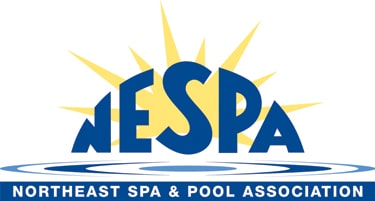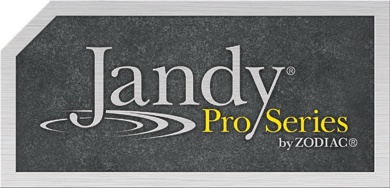The average cost is between $1,500 and $3,000 depending on the water temperature you set. This is for heating from May 1 through September 30.
Unless you live near the equator or love shivering, you need a heater for your pool. A heater keeps your pool at a comfortable swimming temperature — typically between 78 and 82 degrees — and makes it possible to go for a comfortable swim even when the day isn’t scorching hot.
But how do you decide between your pool heating options? And what are those options and how much will they cost to run?
At Neave Pools, we get those questions a lot. And after designing and installing swimming pools for decades, we can help.
So, how much does it cost to heat a pool — your pool? Let’s take a look at the most popular pool heating options and how much it costs to run them.
Let’s take a look at which one might be right for your Northeast lawn.
Taking your backyard to the next level begins by contacting us here or with a simple phone call to Neave Pools at one of our three convenient locations:
-
In the Hudson Valley NY, area, call 845-463-0592.
-
In Westchester County NY, dial 914-271-7996.
-
In Fairfield County CT, contact us at 203-212-4800.
Your Pool Heating Options
The most common types of heaters utilize propane, natural gas or electricity as the fuel source.
They each have their benefits, and how you use your pool can help you decide which heater is best for you.
Gas Heaters
Gas pool heaters use either natural gas or propane. As the pump circulates the pool’s water, the water passes through a heat exchanger, which transfers the heat from the heater’s flame to the pool water.
They’re most efficient when heating pools for short periods of time, and they’re ideal for quickly heating pools.
Gas heaters can warm the body of your pool up to three times faster than an electric heat pump but will also consume up to three times more energy.
Note that if you have an older model gas-powered heater, it’s not as efficient as today’s newer models.
Gas heaters are less expensive up front, but cost more over time to operate. (More on this later.)
Who Should Consider A Gas Heater?
If you’ll be using your pool infrequently, maybe mainly on the weekends, consider purchasing a natural gas heater. You can keep the heat off during the week and then heat the pool quickly.
This is also a good choice if you plan to swim when the weather is quite cool, as the water will heat up faster.
And if your pool includes a spa, you’ll want a gas heater, as it will bring it up to the ideal 100-degree temperature quickly.
If your home is connected to a natural gas line, a professional can hook the system directly to your household gas line.
If you live in an area without a natural gas line and use a propane tank, the heating system connects directly to a stand-alone tank.
Electric Heat Pump
Electric heat pumps are designed to efficiently heat water, using less overall power than a comparable natural gas heater.
How does it work? It’s pretty interesting. A heat pump pulls warmth from the surrounding air, pulls it through a compressor that compacts the heat and injects it into the pool water. Even if it’s cool outside, say below 50 degrees, an electric heat pump pool heater can still find warmth in the air and use it. But it’s more efficient and cost-effective in warmer weather.
There are a variety of different types of heat pumps, and some are better for different situations. A pool expert can help you figure out which type is best for you.
Electric heat pumps cost more up front but are cheaper to run over time.
Who Should Consider A Heat Pump?
If you plan on using your pool on a more frequent basis, you’d likely prefer the cost savings of a heat pump.
How Much Will It Cost To Use?
Determining the cost is a bit trickier. Heating costs can vary widely, depending on how you use your pool.
But the U.S. Department of Energy offers some estimates.
For a gas heater, the U.S. Department of Energy estimates it costs $1,448 a year to heat an outdoor pool in New York at a temperature of 78 degrees. The cost jumps to $1,904 to heat it to 80 degrees and to $2,384 for 82 degrees.
This is based on a 1,000 square foot pool, heated from May 1 to September 30.
Notice, every degree counts. The energy department estimates that for every one degree you raise your pool’s temperature, energy consumption goes up 10 to 30 percent.
But add a pool cover, which reduces the amount of heat loss from evaporation, and you’ll notice significant savings, the energy department reports.
Those annual costs zoom down to $208, $296 and $400 annually, respectively.
Cost To Operate A Heat Pump
The U.S. Department of Energy estimates it costs $740 a year to heat an outdoor pool in New York at a temperature of 78 degrees with a heat pump. The cost jumps to $975 to heat it to 80 degrees and to $1,220 for 82 degrees.
Again, this is based on a 1,000 square foot pool, heated from May 1 to September 30.
But add a pool cover, and you’ll notice significant savings. Those annual costs zoom down to $105, $150 and $200, respectively.
Other Pool Heating Methods
Solar pool heating systems and geothermal heaters are available, but they’re not common in the northeast.
Solar pool heating pumps pool water through a filter and then through solar collectors, where the water is heated before it’s returned to the pool.
Geothermal heating transfers heat from the ground via insulated plumbing lines filled with a liquid — typically water mixed with ethanol or methanol — and runs it to a heat exchanger to heat the pool.
A professional pool contractor can tell you more about these options.
Leave Your Pool Heating To Neave
Neave Pools carries a wide range of different pool heating systems. Your Neave Pools contractor can explain all the differences between each heating system and help you decide which unit is best suited for your pool.
Beyond that, we can establish manual or automated computer controls for your pool heating system. This is a great way to manage your energy consumption so that you aren’t heating the pool when it won’t be in use for long periods of the season, such as when you go on vacation.
If you’re in Hudson Valley, call (845) 463-0592. Westchester, call (914) 271-7996. Cold Spring, call (845) 463-0592, and in Connecticut, call (203) 212-4800. Or fill out the handy web form on this page, and we’ll get in touch with you to schedule a complimentary swimming pool consultation.
Whether you’re building a brand new pool, have an existing pool heating system that needs replacing or are interested in more energy-efficient units, Neave Pools can guide you in the right direction.
Image: Duck thermometer






















